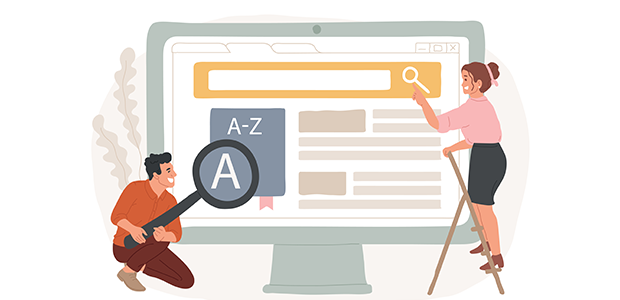
DeepL unveils Glossary Generator to tackle business communication and brand consistency
DeepL, a global language AI company, has introduced significant improvements to its glossary feature, designed to boost translation precision and uniformity.
This tool allows businesses and professionals to tailor translations for specific terms, ensuring greater accuracy. Among the updates is the industry’s first intelligent glossary generator, streamlining the creation of glossaries for translation projects. Additionally, the feature now supports several new languages and integrates seamlessly into DeepL's browser extensions. It also works effortlessly with platforms like Google Workspace and Microsoft 365, providing a smooth experience within existing workflows across the web.
“AI-powered translations are essential for businesses looking to overcome language barriers in today's increasingly connected world, and DeepL’s powerful glossary tool takes this a step further by ensuring translations are personalised to a company’s unique phrases and needs,” said Christopher Obsorne, VP of Product, DeepL. “We’re always looking for ways to improve the DeepL experience and drive even more value and ROI for 100,000+ customers worldwide, and these new capabilities make our glossary even more efficient, accessible and user-friendly – empowering teams to achieve the customisation and consistency they are looking for, while minimising time spent on costly alternatives like manual translations or find-and-replace tools.”
For global companies looking to grow revenue, maintaining brand consistency across languages and communications is crucial. Whether it’s technical jargon, product names, or key branded terms, ensuring that messaging is clear and unified for teams, clients, and international markets is essential. Research shows that consistent branding can drive revenue growth by over 20% and increase visibility by 3 to 4 times. However, achieving this level of consistency can be both costly and challenging. DeepL’s glossary tool simplifies this task, enabling companies to build and scale multilingual communications with precision. The tool lets businesses create custom translation glossaries, ensuring specific terms are always translated according to their unique branding.
DeepL’s recent updates to the glossary feature introduce new capabilities, including:
- AI-powered smart glossary generator: This innovative tool allows users to generate custom glossaries with ease. By uploading previously translated files, businesses can quickly generate personalised glossaries, reducing manual work and increasing efficiency. This tool enables teams to maintain consistent communication at scale with minimal effort.
- Expanded language support: Glossary now covers translations in Korean, Danish, Swedish, Norwegian, and Romanian, bringing the total to 16 languages. This wider range allows for more accurate and context-specific translations, helping businesses communicate effectively across diverse markets.
- Improved accessibility across platforms: Users can now apply the glossary directly in DeepL’s Chrome and Edge browser extensions, supporting consistent translations across the web, including Google Workspace applications. It’s also integrated with Microsoft 365 tools like Word, Outlook, and PowerPoint, and available through DeepL’s web interface, desktop apps, and API.
Unlike basic find-and-replace tools, DeepL’s glossary offers advanced contextual understanding. It handles complex grammatical structures such as case, gender, and tense to deliver accurate, natural-sounding translations. This results in significant productivity improvements, as teams spend less time on post-editing. In blind tests with language professionals, DeepL reduced post-editing time by 30% compared to Google Translate and 20% compared to ChatGPT-4. DeepL also required fewer revisions, with Google Translate and ChatGPT-4 needing two to three times more feedback rounds.
For businesses concerned with data security, DeepL Pro’s glossary offers advanced safeguards, including proprietary data centres, the highest certifications (ISO 27001, GDPR/SOC 2 type 2), data encryption, and a commitment to not use Pro customer data for model training. The glossary generator, now available for Pro Advanced and Ultimate subscribers, supports TMX, DOCX, and PDF files.

